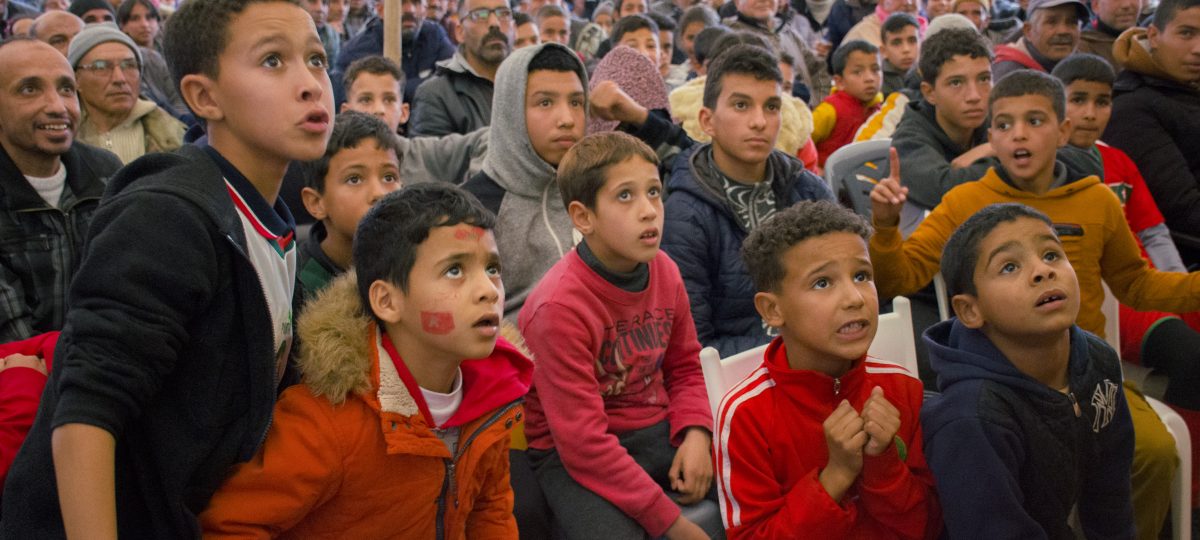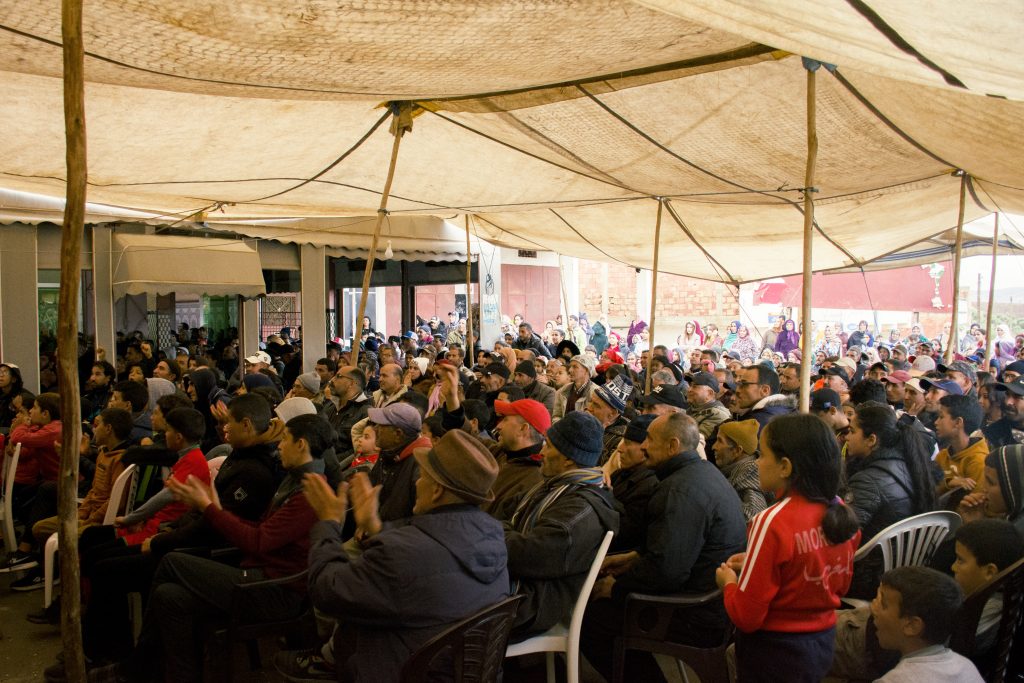
It’s been called the most risqué party in the village: flashy pajamas swaying against the women’s bodies, closeby men spending a work day not working, young boys entering a ritual of masculinity, patriotism, and football – all for a 60cm screen pressed far against the wall of a café in a town whose name is claimed by rural Morocco.
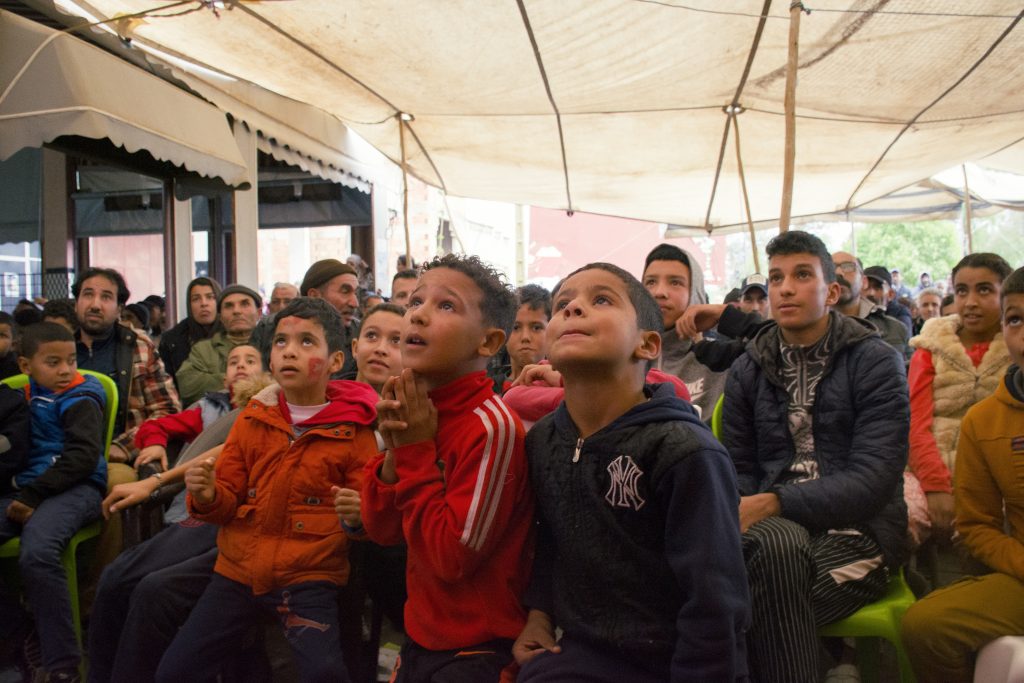
Abdel-Hamid was the man of the party. He woke up at 6 am, light, chauvinistic, diverting from thoughts of victory, fears of loss, but mostly angst over landing himself a seat in one of the four cafés in Houderrane village, in Khemisset province, knowing all too well that of the 6,572 people living in town, all would want a seat to witness Morocco’s historic game in the World Cup against Portugal.
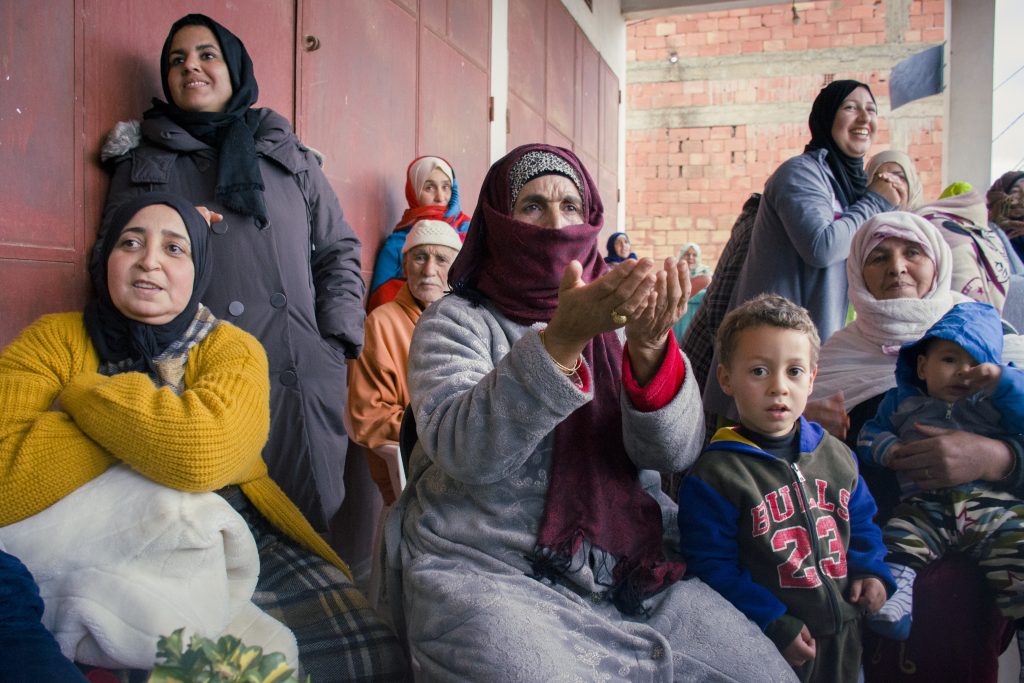
As the day advanced, a field of plastic chairs came swinging over the shoulders of the dozens of people, who although tardy and surely unable to get a good view of the small café screen, made it to the communal celebration.
Abdel-Hamid chose the town’s central café where a makeshift tent has been erected to accommodate the excited crowds, who for the first time ever included women.
“I don’t want to make a big deal out of it. You know, all the men were okay with us women coming to the café. I’m just happy to see my country’s flag raised high,” Fatima said, facial expressions twisting when asked if she’d want to come to the café more often.
While the men sat up front, the women gathered around in the periphery of the cafés. Mostly dressed in colorful pjs and convulsed with laughter at one point or another, the women lifted hands in prayer, squirmed when the Portuguese team neared Morocco’s defense, sat up and down in a display of hope and rare aggression.
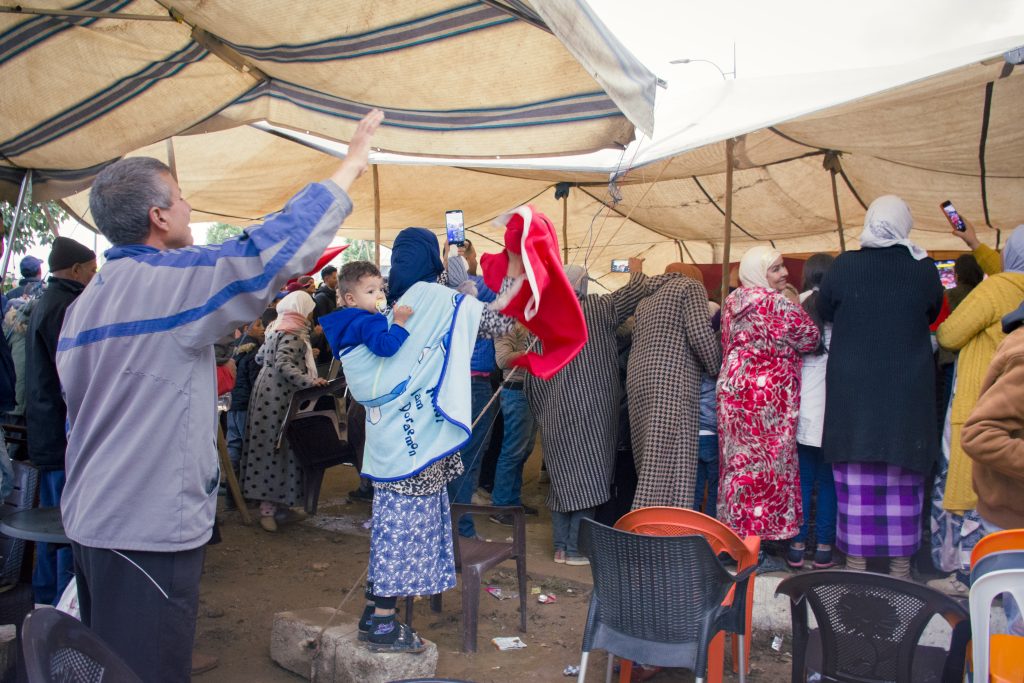
“It’s a very special day. The feeling is powerful, the rain is falling. There is nothing better than this,” Mohammed told Hespress EN after Morocco’s historic win.
The 50-year-old farmer said that although this is the most critical time of year for growing crops, he and many others could not help but miss a day of work. “It’s like a national holiday,” he said.
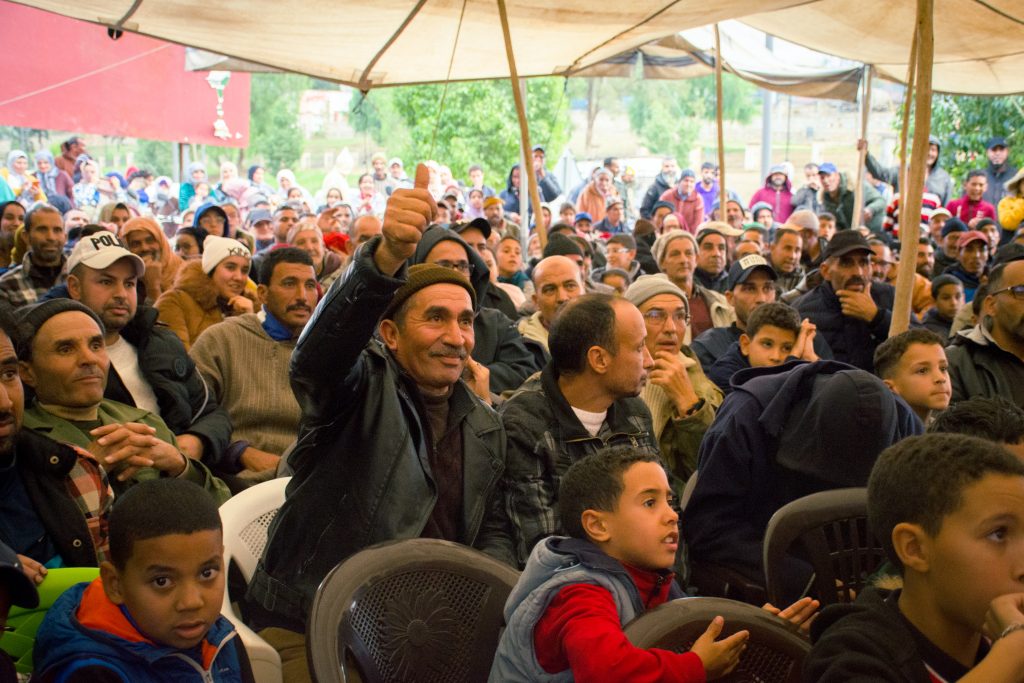
Almost 50% of Morocco’s agricultural GDP relies on farmers like Mohammed, but in a country where rural and urban, rich and poor, developed and deprived still exist within stark contrast, farmers only see a fraction of the gains Morocco achieved in recent years.
“We are simple people. Our lives are spent in labor, so it’s moments like these when we can put down our plows and enjoy ourselves,” he said before joining his neighbors in the town’s main square where screams of joy, trucks honking horns, and flags raised high colored the atmosphere.
